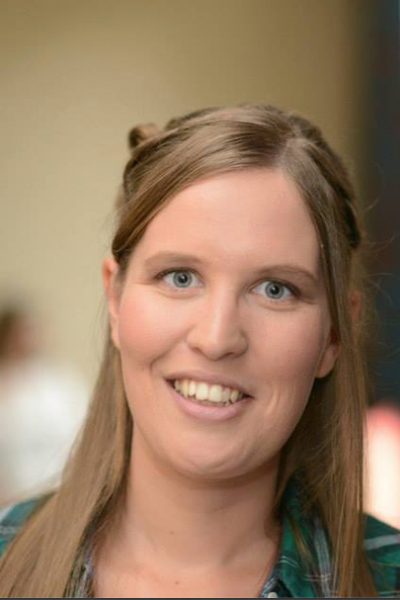Dr Rafaelle Nicholson is a Senior Lecturer in the Faculty of Media & Communication here at BU. She is also a published author and freelance journalist.
Dr Nicholson’s work examines gender and sport, recently focusing on the governance of women’s sport in the UK. Following training from BU’s Research Development & Support Team, Raf has made the most of opportunities to bring her research to the attention of UK policymakers.
A strong, unique message can cut through the noise
For a long time, my research area – women’s sport – had been neglected by policymakers. Thankfully, this is changing. Perhaps it’s partly because gender parity in Parliament is getting closer. But also because there’s been noticeably more media and public support for women’s sports on the national stage. This has been instrumental in getting politicians to sit up and take notice.
However, there’s a lot of stakeholders jostling to be part of the conversation around the future of women’s sport. Policymakers are bombarded with information, and they have to deal with countless individuals, groups and organisations trying to get their attention. I’ve found that having something unique to say helps cut through the noise. My research has found that merging men’s and women’s sport under single governing bodies may not be the best way to support women’s sport. This is quite a unique perspective, but I’ve found many policymakers are open to rejecting old assumptions in favour of evidence-based policy.
Talking face-to-face about shared passions
I was lucky enough to get a place on a BU training course organised by the Research Development and Support Team which was all about influencing policy. This gave me a much clearer picture of how policymaking works and which avenues I can use to get involved. After I’d put together some materials, I worked with the trainer on specific actions I could take to get my work out there. I spent time on was identifying policymakers who genuinely care about women’s sport, so I wasn’t wasting my time contacting people who wouldn’t be interested.
One outcome of this strategic engagement was being invited to lunch by James Daly MP, Chair of the All Party Parliamentary Group on Cricket, in the House of Commons! Talking face-to-face about a shared interest or passion is, I think, the best way to build relationships with policymakers.
That said, I’ve found that you do need a multi-pronged approach to engagement, rather than relying on one contact to take your work forward. So when the Culture, Media & Sport Committee opened an inquiry into women’s sport, I added that to my influencing plan. With help from the course trainer, I redrafted my research into an appropriate submission, really emphasising that I had something different to say – and suggested clear, actionable recommendations.
A career highlight
As a result of my written submission, I was called to give oral evidence at a Committee hearing in the Palace of Westminster. I was delighted, as not everyone who submits is asked to give evidence in person. I think they chose me not only because I had evidence, but because what I have to say is unusual – Parliament’s Committees are keen to foster diverse views before they make their conclusions.
Although I was delighted and honoured to be asked to give evidence, I was initially quite nervous about the hearing! I had two-to-three weeks’ notice, and immediately contacted the course trainer for advice. She talked me through what the Committee would be looking for, how the hearing would run, and the logistics for the day. The day before the hearing, I was able to speak with one of the Clerks of the Committee, who gave me an idea of the lines of questioning. All of this helped me feel well prepared, but going into the Palace and the Committee Corridor was still quite overwhelming.
The hearing was only an hour or so, and there were three other witnesses on the panel. I feel I got my main points and recommendations across. So, it was definitely a career highlight.
Impact doesn’t always go to plan!
But then there was a setback. While I was waiting for the Committee’s report to be published, the Government called the 2024 General Election. This meant that, with Parliament dissolved, the work of all Committees stops and they’re disbanded. The Digital, Culture, Media & Sport Committee will be set up again in the next Parliament, but with new members who may want to take up other issues. If that’s the case, it’ll be disappointing not to know if any of my evidence would have been quoted in the report, or any of my recommendations taken up. But there will be opportunities through All Party Parliamentary Groups, a new ministerial team in the Department for Digital, Culture, Media and Sport, and a whole bunch of new MPs who might be interested in women’s sport. The experience has certainly highlighted the importance of being flexible, practising patience and using varied influencing routes, as everything in politics can change overnight.
 Dr Raf Nicholson
Dr Raf Nicholson